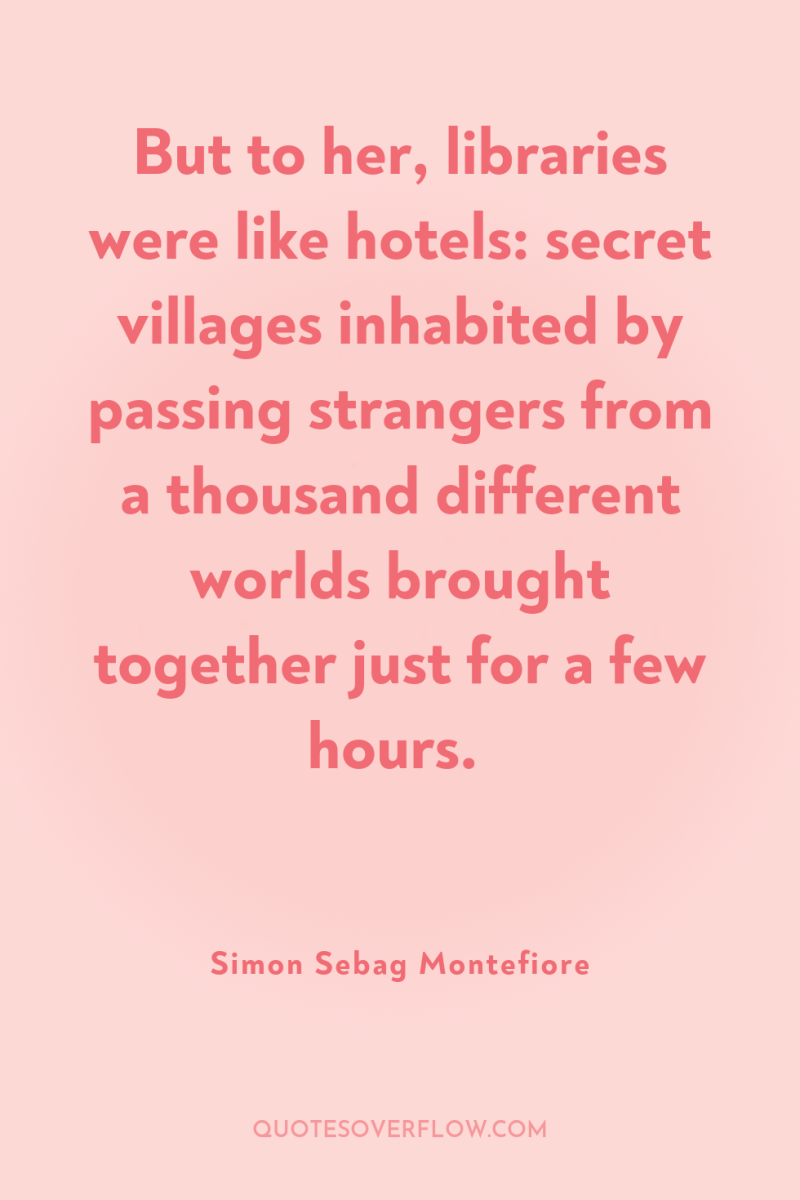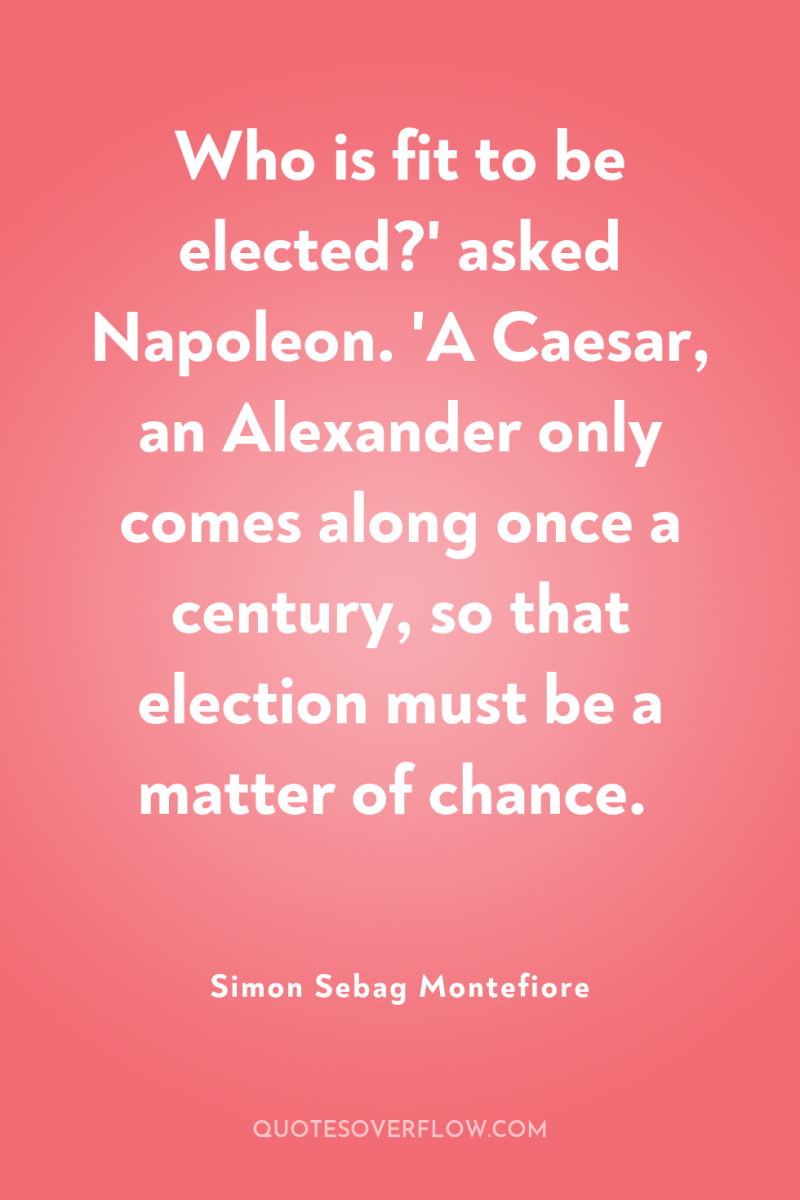
1
But to her, libraries were like hotels: secret villages inhabited by passing strangers from a thousand different worlds brought together just for a few hours.Simon Sebag Montefiore

2
Who is fit to be elected?' asked Napoleon. 'A Caesar, an Alexander only comes along once a century, so that election must be a matter of chance.Simon Sebag Montefiore
3
Power is always personal: any study of a Western democratic leader today reveals that, even in a transparent system with its short periods in office, personalities shape administrations. Democratic leaders often rule through trusted retainers instead of official ministers. In any court, power is as fluid as human personality.Simon Sebag Montefiore
4
Very few politicians, who have chosen a political career, can fulfill the aspirations and survive the strains of an elevated office that in a monarchy was filled so randomly. Each tsar had to be simultaneously dictator and supreme general, high priest and Little Father. They required all the qualities listed by the sociologist Max Weber: the personal gift of grace, the virtue of legality, and "the authority of the eternal yesterday.Simon Sebag Montefiore
5
Marx wrote that 'History repeats itself, first as tragedy, second as farce.' This was witty but far from true. History is never repeated, but it borrows, steals, echoes and commandeers the past to create a hybrid, something unique out of the ingredients of past and present.Simon Sebag Montefiore
6
It seems that Russia today–dominated by, and accustomed to, autocracy and empire, and lacking strong civic institutions especially after the shattering of its society by the Bolshevik Terror–is destined to be ruled by self-promoting cliques for some time yet.Simon Sebag Montefiore
7
Greatness needs courage (above all) and willpower, charisma, intelligence and creativity but it also demands characteristics that we often associate with the least admirable people: reckless risk-taking, brutal determination, sexual thrill-seeking, brazen showmanship, obsession close to fixation and something approaching insanity. In other words, the qualities required for greatness and wickedness, for heroism and monstrosity are not too far distant from each other. The Norwegians alone have a word for this: stormannsgalskap — the madness of great men.Simon Sebag Montefiore
8
Stalin was always exceptional, even from childhood. We have relied on Trotsky’s unrecognizably prejudiced portrait for too long. The truth was different. Trotsky’s view tells us more about his own vanity, snobbery and lack of political skills than about the early Stalin.Simon Sebag Montefiore
9
Beneath the eerie calm of these unfathomable waters were deadly whirlpools of ambition, anger and unhappiness.Simon Sebag Montefiore
10
The formation of Stalin’s character is particularly important because the nature of his rule was so personal.Simon Sebag Montefiore
11
Lenin and Stalin created the idiosyncratic Soviet system in the image of their ruthless little circle of conspirators before the Revolution. Indeed much of the tragedy of Leninism-Stalinism is comprehensible only if one realizes that the Bolsheviks continued to behave in the same clandestine style whether they formed the government of the world’s greatest empire in the Kremlin or an obscure little cabal in the backroom of a Tiflis tavern.Simon Sebag Montefiore
12
Jerusalem has a way of disappointing in tormenting both conquerors and visitors. The contrast between the real and heavenly cities is so excruciating that a hundred patients a year are committed to this city's asylum, suffering from the Jerusalem Syndrome, a madness of anticipation, disappointment and delusion.Simon Sebag Montefiore
13
The murky world of terrorism is more relevant than ever today: terrorist organizations, whether Bolshevik at the beginning of the twentieth century or Jihadi at the start of the twenty-first, have much in common.Simon Sebag Montefiore